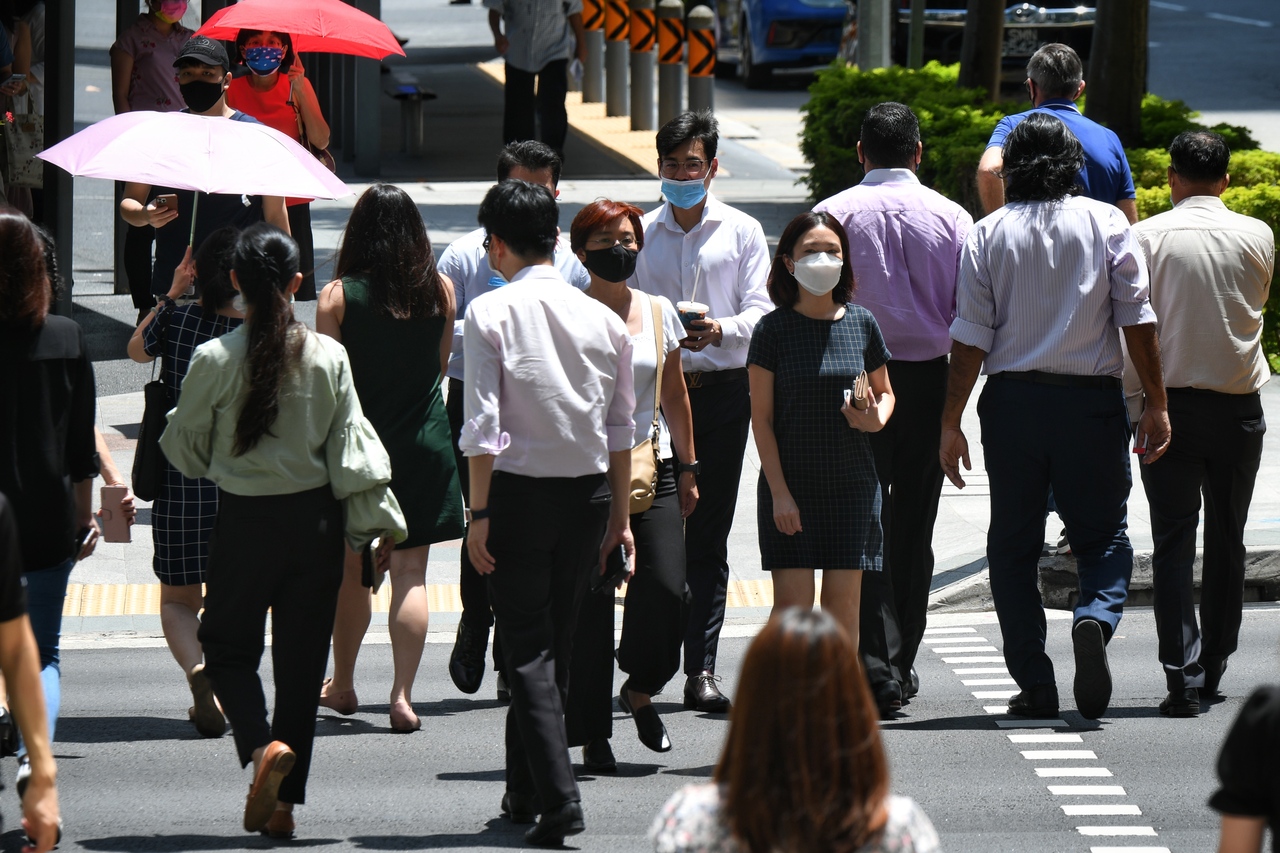Employment disputes to be fully managed online by 2023
Sign up now: Get ST's newsletters delivered to your inbox

More local workers sought help from the authorities for disputes with their employers over owed salaries and wrongful dismissals last year.
PHOTO: ST FILE
SINGAPORE - By 2023, artificial intelligence will be used to guide parties in resolving employment and salary disputes, and it will be possible to complete the full dispute resolution process online.
This includes the advisory stage, lodging a claim, mediation and post-mediation tasks such as payment monitoring.
The Manpower Ministry (MOM) is converting the mediation process to an online one so that the disputes can be resolved remotely, Senior Minister of State for Health and Manpower Koh Poh Koon said in a Facebook post on Friday (July 9).
Face to face mediation can still be offered for cases that are more complex.
Dr Koh was commenting on statistics, released on Friday by MOM and the Tripartite Alliance for Dispute Management (TADM), which showed that more local workers sought help from the authorities for disputes with their employers over owed salaries and wrongful dismissals last year, amid the Covid-19 pandemic.
TADM said it piloted an online dispute resolution process that allows parties to use electronic communication tools to settle their disputes, which came in handy during the circuit breaker period.
Said Dr Koh: "When disputes have to be escalated, TADM stands ready to help parties reach a fair and amicable settlement."
National Trades Union Congress (NTUC) assistant secretary-general Patrick Tay added in a Facebook post: "We will continue to work with our partners, to digitalise efforts and to further smoothen the process of dispute resolution, particularly given the continued need for safety measures and social distancing."
The Singapore National Employers Federation (SNEF) said that generally, employers were "responsible in managing excess manpower during the pandemic".
It noted that there were some employers whose businesses had failed and did not have the financial means to pay the salaries of their employees, adding that it had contributed $1 million to the Short-Term Relief Fund to help local lower wage workers whose employers were in such situations.
With the Singapore Government putting in $3 for every dollar that SNEF contributed, the fund was boosted by $4 million.
"Overall, the tripartite approach to try to resolve employment disputes through mediation has resulted in most cases being settled amicably and expeditiously," the federation said in a Facebook post.
The statistics showed that though more local workers had sought help from the authorities in disputes with their employers, employment claims by foreigners fell sharply. This had the effect of pushing down the overall incidence of employment claims last year.
Singapore Business Federation chief executive Lam Yi Young said that last year was challenging for many businesses, with some of them having to implement measures like retrenchments, pay cuts, pay freezes and no-pay leave periods.
This could have contributed to the slight increase in the incidence of employment claims for local employees last year, he noted.
Mr Lam added: "Although the incidence of claims remains low, we urge all employers to continue to treat their employees fairly and prioritise prompt payment of salaries to their employees."
Ms Chew Lee Ching, vice-president of the Association for Small and Medium Enterprises' (ASME) awards and special projects department, said that SMEs in particular have been hard-hit, and some of the claims from local workers could be from such enterprises.
"In the feedback sessions that ASME holds occasionally, this is a constant issue brought up by SME owners - that business is severely impacted," she said.
She noted that skills upgrading and training will play a big role in companies' journeys towards recovery.
"When the business situation improves, the workers will be in a better position to apply the skills they have learnt and help the companies grow... We will need to look at what new skills we can help our staff and employees to pick up, so that they can stay relevant."
Mr Ian Lim, head of employment and labour at TSMP Law Corporation, said a possible reason for the fall in claims from foreign employees could be that many of them had left Singapore last year. Some left to be with their families overseas during the pandemic, but many others left as a result of losing their jobs.
"Foreigners losing their jobs here have their work passes cancelled, which results in them mostly having to leave Singapore within a month or less if they cannot find another job - and new jobs were scarce in many sectors last year," he said. "Under such circumstances, it would have been more challenging for foreigners to lodge employment claims here."


